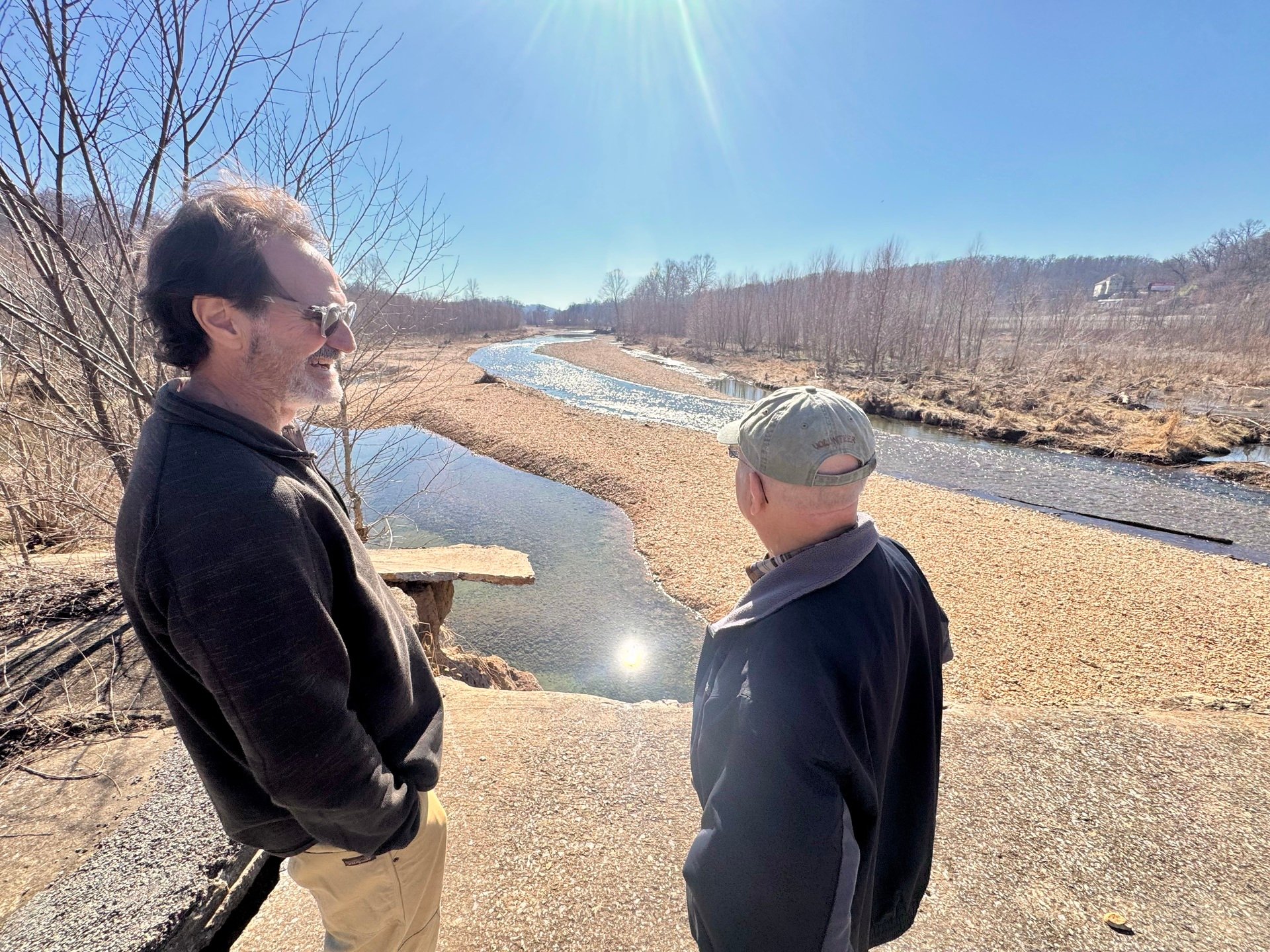
Members of the City Council at a meeting earlier this year.
There’s a group of local elected officials that meets multiple times each month to make decisions that affect day-to-day life in Bentonville.
That group is the City Council, which has authority over roads, parks and recreation, police and fire, land use and zoning decisions, sewer and water systems, public art, electric service, trash service, and city planning, among other things.
Some specific examples of recent business include deciding the fate of a mural on city-owned land, approving sewer rate increases, and considering historic preservation options for the downtown area.
For many residents, though, exactly how the City Council works is a bit of a mystery.
City Council meetings are open to the public, but sparsely attended. There are unfamiliar terms to get through, and a formality to the process that can make it hard to follow. Too often, people find out something was being considered after a decision starts to affect them.
Here’s a primer on what the City Council does, how it works, and how to make your voice heard.
What’s the Difference Between Mayor and City Council?
In Bentonville, residents elect both a mayor and a City Council, who share power over city government.
The mayor, currently Stephanie Orman, serves as the city’s CEO and is often considered the “face” of city government. She runs day-to-day operations, prepares budgets and long-term plans, and directs city staff.
The City Council is made up of eight elected officials, who work part time for the city. Each represents a different area of the city called a “ward.” While the mayor has significant influence, it’s the City Council that ultimately passes local laws, approves spending, and has the final say for most other major decisions.
Essentially, the mayor proposes actions the city should take, and the City Council provides feedback and votes on the path forward. The mayor is an active part of City Council meetings, but she doesn’t get a vote unless there’s a tie.
How Can I Stay Up-to-Date With What They’re Doing?
City Council meetings are normally held on the second and fourth Tuesday of each month at 6 p.m. at City Hall.
The meetings are open to anyone that would like to attend. State law requires all City Council discussion and decision-making to be done in a public setting, with very few exceptions.
The council publishes an agenda before each meeting with the items they plan to discuss and vote on. You can sign up to receive email message alerts when a new agenda is posted.
Meetings are also livestreamed on Zoom. Look for a registration link on the meeting agenda.
How Do the Meetings Actually Work?
The length of meetings varies depending on what’s being discussed, but they often last several hours. The format is fairly standard. Here’s how things usually go:
The Pledge of Allegiance is recited. A non-denominational moment of silence follows, with the audience asked to remain standing.
Roll is taken, and notes — called “minutes” — from the last meeting are officially approved.
City Council members approve a “consent agenda” of items that council members feel don’t need individual discussions. These are routine actions such as approving a purchase or making a minor budget adjustment. With one vote, the council is able to approve them all.
Time is set aside for awards or proclamations.
The Council moves through the rest of the agenda, discussing topics and hearing from residents who signed up to speak (more on that below). They may also hear from city staff, property owners, or other people involved.
Some items are informational, but most require a vote. When council members are ready, one makes a “motion,” another offers a “second,” and the vote is taken.
Depending on the type of vote, the City Clerk either calls roll — reading each council member’s name and recording their vote — or a voice vote is held, where members say “yes” or “no” aloud and the result is determined by which side has more responses.Council members share informal updates with the group, including reports from the committees they serve on.
Members of the public who signed up for public comment on an item that was not on the official agenda are given a chance to speak.
How Can I Be Heard?
If there’s a topic you’d like to address, there are several ways to communicate with City Council members.
Speak at meetings: Any resident is able to speak at City Council meetings. Look for the sign-in sheet before meetings start to register your interest in speaking. When your name is called, you can come to the podium and speak for up to three minutes.
Comment virtually: Public comments can be made virtually by registering for the council meeting at the Zoom link listed on agendas.
Consider contacting city departments first: Many standard complaints about issues in the city – such as reporting potholes, streetlights that are out, or stray animals – can be handled by contacting individual city departments. The best place to start is the city’s 311 website.
Jargon You Might Encounter
There are a number of terms you might encounter in City Council meetings that can be unfamiliar to the average person:
Agenda: A document prepared before each meeting that lists what the City Council will discuss.
Minutes: Notes about what happened in a meeting. These are approved at the following meeting, so there’s usually a delay before they’re published.
Motion: When a council member proposes an action — for example, approving an ordinance — that will then be voted on.
Ordinances and resolutions: Both of these are voted on by the City Council. Resolutions are formal statements of approval or support for an action, contract, budget change, or policy. Resolutions are usually administrative and not permanent law. Ordinances are local laws.
Budget Adjustment: A formal change to the city’s approved budget.
Committee of the Whole: Occasional workshops scheduled by the City Council, where they discuss items, hear from presenters, and have wide-ranging conversations about issues facing the city. No official votes or actions are taken during these meetings.
Proclamation: A formal recognition, often used to honor a person, group, or cause.
Did We Answer Your Questions?
The Bentonville Bulletin prepared this to help you understand how City Council works. If you still have questions, please email us at [email protected].
If you’re wondering something, chances are others are, too.






